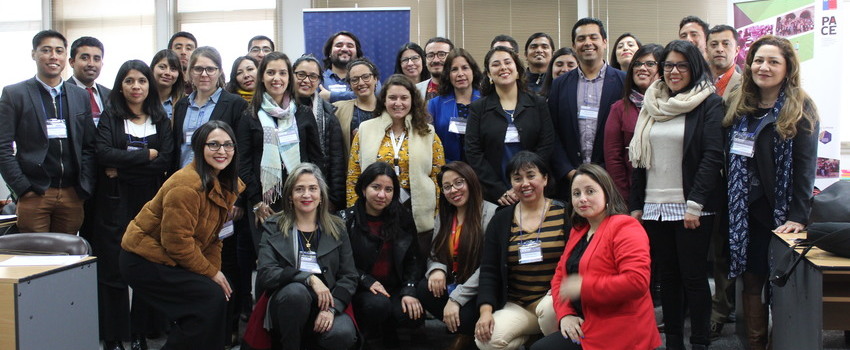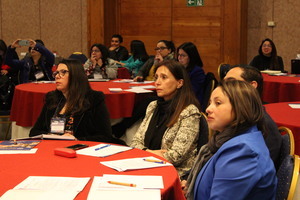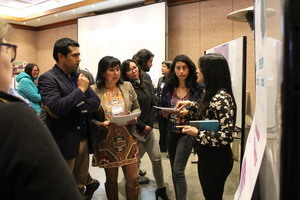- News
PACE seminar sought to generate links with support networks external to the house of higher education

Twelve teams from Higher Education Institutions in the country took part in this activity.
The Support and Effective Access to Higher Education Program (PACE ULS), within the line of the Higher Education Support Component (AES), held the Seminar “Good Practices for Comprehensive Support in Higher Education: Meetings between HEIs, at the regional and interregional”, aimed at professionals who work in support programs at the national level.
 The AES PACE ULS coordinator, Claudia Toledo, stated that “this is an instance that our team has been preparing for a long time and is framed in one of the milestones of the operational plan of our program, which is framed in actions of articulation, monitoring and referral made with support networks, IES PACE, inside and outside the educational institution; which we also see as an opportunity to share experiences with other teams that experience the same successes and difficulties every day, and what better than being able to share it in guided instances, such as the two days we experienced."
The AES PACE ULS coordinator, Claudia Toledo, stated that “this is an instance that our team has been preparing for a long time and is framed in one of the milestones of the operational plan of our program, which is framed in actions of articulation, monitoring and referral made with support networks, IES PACE, inside and outside the educational institution; which we also see as an opportunity to share experiences with other teams that experience the same successes and difficulties every day, and what better than being able to share it in guided instances, such as the two days we experienced."
The objective of this seminar was to articulate networks and systematize good accompaniment practices implemented in various Higher Education institutions that work with accompaniment programs.
The strategies for participation in the seminar in the academic and psychoeducational area were: the presentation-only modality and poster presentation, which were applied on both days. In total, there were twelve PACE teams belonging to the different HEIs in the country, which participated in the activity.
Reviews
The participants of both days delivered their appreciation of the meeting held by the PACE Program of the University of La Serena.
 The AES coordinator of PACE Pontificia Universidad Católica de Valparaíso (PUCV), Andrea Sepúlveda, said: “I think it is an opportunity to be able to reflect together on the challenges that the PACE Higher Education component has and to be able to share with the HEIs at the national level about the progress, situations that continue to be opportunities and to be able to project ourselves into the future regarding the implementation of the program, in each of our contexts and also defining and combining criteria for what are common elements for the implementation of this component in our respective institutions.
The AES coordinator of PACE Pontificia Universidad Católica de Valparaíso (PUCV), Andrea Sepúlveda, said: “I think it is an opportunity to be able to reflect together on the challenges that the PACE Higher Education component has and to be able to share with the HEIs at the national level about the progress, situations that continue to be opportunities and to be able to project ourselves into the future regarding the implementation of the program, in each of our contexts and also defining and combining criteria for what are common elements for the implementation of this component in our respective institutions.
The AES executive psychologist of the Federico Santa María Technical University (USM), Macarena Rodríguez, meanwhile, expressed “that this seminar was enriching, since it forced us to see our practices and then, once we met the other teams, there was lots of feedback; We leave overflowing with ideas, with a great desire to replicate in our institution many of the learnings that we obtained from the two days and also highlighting things that we do, since in the daily newspaper we do not have time to reflect and in this seminar we did it, we We are happy with what we have learned and are sharing it with the rest of the PACE USM team.”
For the PEM coordinator of the University of Tarapacá, José Imaña, “as a program it is important to be able to share our experiences when implementing the program and know what is happening with the other university campuses that implement it. As you will understand, we are in Arica, a little far from other institutions, and being able to count on these instances is very valuable for us as a team, in addition to having contributed with some of what we do. Now we get many different perspectives and I hope that this network is maintained and that instances like this continue to be replicated, only positive words for this seminar.”
Written by Daniel Aguayo, PACE ULS Program
